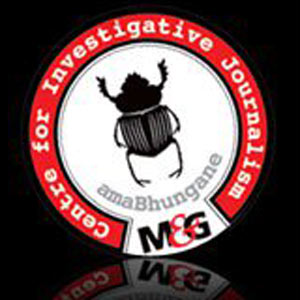Vivian Reddy says he has always regarded it as his duty to help struggle veterans.
Vivian Reddy, the Durban tycoon who helped to fund the first phase of President Jacob Zuma's sprawling Nkandla homestead, prides himself on bankrolling ANC struggle veterans.
Evidence was led at the corruption trial of Zuma's former financial adviser, Schabir Shaik, that after Shaik balked at the escalating cost of the Nkandla development, Reddy stepped in to help Zuma to secure a home loan from First National Bank (FNB).
The judge in the Shaik trial, Hilary Squires, also found that a R250 000 payment by French arms-deal bidder Thomson CSF (formerly called Thales) to Zuma had passed through the bank account of Reddy's Development Africa Trust en route to funding the Nkandla project.
Nklandlagate: The impact on Mangaung and beyond
In a February 2012 profile in the Witness newspaper, Reddy is quoted as saying: "It's no secret that I have helped lots of struggle veterans because it is in my nature to help people. I have been in business since apartheid, while these brave people sacrificed their jobs, lives and families to give the nation human rights and dignity. This is my way of contributing to the liberation struggle.The sacrifices made by these activists for a free and democratic South Africa are deserving of my generosity. Where would we be without their selfless contribution?
"I have helped lots of them and, like Zuma, they pay me back. I put formal loan agreements in place."
The KwaZulu-Natal-born electricity magnate started to build his Edison Power Group more than 30 years ago with just R500 in his pocket and a borrowed bakkie.
Read more…
What's in the name of a country estate?
Profligate and presidential
Documents call Zuma's bluff
His family-owned empire has expanded from a one-man electrician's shop to a wide portfolio of interests in energy, casinos, healthcare, financial services and property development.
Insurance assessments
Much of his wealth comes from major KwaZulu-Natal government contracts, including one related to the R7-billion Dube Trade Port, as well as lucrative black economic empowerment deals.
He has publicly donated money to the Jacob Zuma Foundation and gave financial support to Zuma before the ANC's 2007 Polokwane conference, although he claimed that the latter had paid him back "every cent" in terms of a formal agreement.
In 2002, Reddy helped Zuma to secure a R900 000 home loan from FNB on his Nkandla residence.
Zuma first applied for a loan in 2001, when his homestead was worth between R650 000 and R750 000, according to a bank valuation and insurance assessments.
By December 2002, FNB had granted him a loan, despite the fact that he was in dire financial straits, did not have a formal lease on the land and the bank's policy was not to bond property in tribal trusts.
The existence of the loan and some of the details surrounding it were confirmed in the original indictment against Shaik. The loan was granted, the court was told, only because of a R400 000 surety signed by Reddy, who then made the monthly R12000 bond repayments until at least March 2004.
The indictment noted: "Without [Reddy's] surety, the application would not have been approved due to the financial profile of Zuma and the fact that the property in question forms part of tribal land."
Repaid
Last weekend, Reddy confirmed that he had lent Zuma money for the first phase of construction, adding that the loan had since been repaid.
In his judgment in the Shaik trial, Squires referred to evidence that Reddy had stepped in to help a cash-strapped Zuma with payments for Nkandla when Shaik reportedly grew frustrated with his profligate spending.
Zuma contracted builder Eric Malengret to build the homestead at a cost of R2.4-million, later reduced to R1.3-million, without consulting Shaik, although he had no way of paying for the construction.
Reddy also allegedly lent Malengret R50 000 after Zuma failed to pay him.
At least part of the payment for Nkandla, according to prosecutors in Shaik's trial, was linked with the notorious "encrypted fax" drawn up by an executive of French defence company Thomson CSF, Alain Thetard.
The fax reflected Thetard's report of his meeting with Shaik and Zuma in Durban in March 2000, the month Zuma commissioned architects to design his homestead.
According to the fax, Shaik indicated to Thetard that Zuma was requesting R500000 a year in return for his protection in the looming investigation of the arms deal and his support for future Thomson projects.
Zuma denied the meeting to Parliament, whereas Shaik said during his trial the meeting did happen, but was about a Thomson donation to the Jacob Zuma Education Trust, an explanation rejected by the judge.
Instead, Squires found that a first payment of R250 000 in terms of the bribe agreement found its way into Reddy's bank account: "It is clear that one payment was made which went via [Shaik's company] to Development Africa, which was Reddy, and Reddy eventually achieved payment of a large part of the costs of the Nkandla project."
* Got a tip-off for us about this story? Email [email protected]

The M&G Centre for Investigative Journalism (amaBhungane) produced this story. All views are ours. See www.amabhungane.co.za for our stories, activities and funding sources.